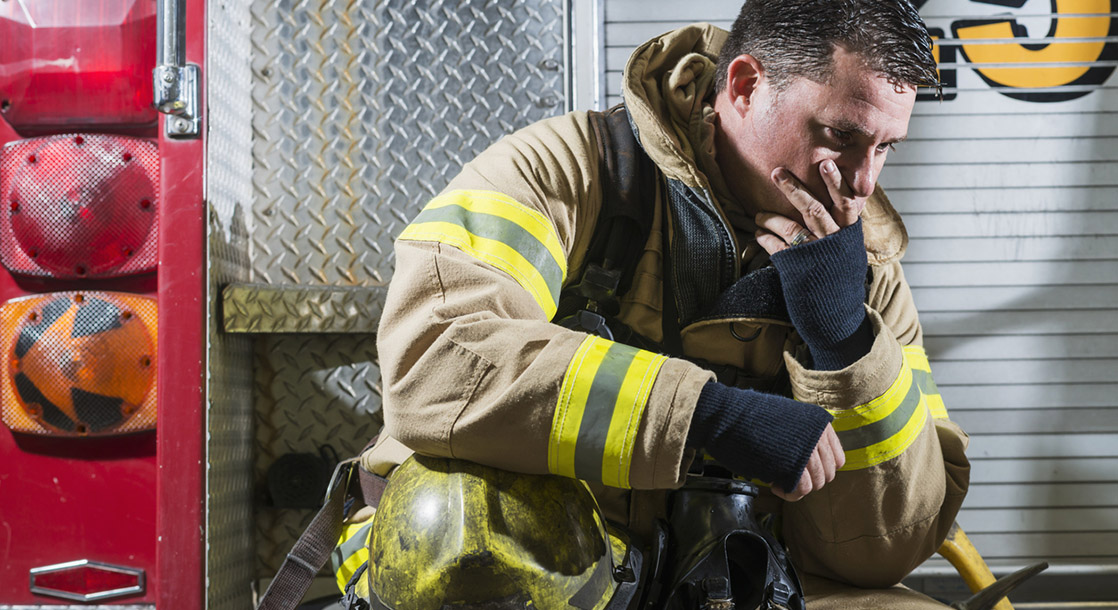Levi Coleman, a firefighter based in Ogden, Utah, did everything by the book. Yet, for the past three months, he’s been out-of-work on unpaid leave. He hasn’t been on leave because of an injury, an illness, or a failed drug screen.
Coleman has been suspended from his career, without pay, simply because he got a medical cannabis card, legally issued to him in June through the Beehive State. He’s just about run out of his allotted sick and vacation days, too. So, he did what any sensible, responsible professional should do: He’s suing the city of Ogden — a town 40 miles north of Salt Lake City — to recoup all his lost pay and the job he excelled at for 10 years.
Now, most states with some form of legal weed usually restrict anyone working in a safety-sensitive position — such as a construction worker, doctor, or a firefighter — from consuming cannabis on- or off-the-clock, medical card or not. However, Utah didn’t follow that same old beaten path. Instead, Utah’s medical cannabis law stipulates that the state’s public employers “shall treat an employee’s use of medical cannabis… the same way the state or political subdivision treats employee use of any prescribed controlled substance.”
Coleman and his attorney are now arguing that forcing him to surrender his medical cannabis card is a violation of state law. Technically, he should be allowed to use medical cannabis, so long as he doesn’t show up impaired to his firefighting job. There’s no evidence that Coleman ever reported to duty in less than tip-top condition. In fact, firefighters’ union officials say he regularly bests the majority of his peers in yearly physical agility tests.
Besides always showing up ready and able to work, Coleman followed his medical cannabis protocols by the book, as well. Shortly after he received his card, he informed Ogden officials in writing, in accordance with a policy change requiring public employees to disclose prescription medication that could cause impairment. He was suspended without pay until he relinquished his medical marijuana card — a decision three other Ogden firefighters have already submitted to, making Coleman’s refusal to do so all the more noteworthy.
“We have our firemen and policemen who do have on-the-job trauma, mentally, and physically,” said the executive director of the Utah Patients Coalition, Desiree Hennessy. “There’s no reason to restrict them from medical cannabis off-duty. We’ve never advocated for someone showing up using some kind of mind-altering medicine at work… but in this case they are using it off-duty, it’s not going to affect their job, and they deserve it just like anyone else.”
Coleman is not the only firefighter who is standing up for their right to use medical marijuana. In Buffalo, New York, war veteran Scott Martin was fired from the fire department after a urine test came back positive for cannabis. Martin has been a cannabis patient since 2018, when he started taking the drug to deal with injuries sustained while fighting fires, on top of trauma from his time in the Armed Forces. Martin has since filed a grievance with his union to get his job back.
Back in Utah, Salt Lake Tribune columnist Robert Gehrke called Coleman’s situation “sort of a landmark case,” adding that it might be the first time that a US firefighter has sued for their right to consume cannabis.
“What’s happening to [Coleman] is pretty far out of bounds,” said Sen. Daniel Thatcher (R-District 12), who is sponsoring legislation that would expand protections for medical marijuana patients in government jobs, making it explicitly illegal to penalize an employee for possessing a medical cannabis card. “If the legislature says you cannot be penalized for lawful actions, provided there’s no impairment, [a city] should not be able to get around that because we didn’t say, ‘You cannot punish someone for having a card.’”
Thatcher’s bill was passed unanimously out of committee last month, and will be considered by the state legislature in January.
Utah may be one of the latest states to legalize medical cannabis, but it’s already proving to be a battleground in the fight for patients’ rights. Supposedly more progressive weed-legal states should take notes.
Follow Caitlin on Instagram











